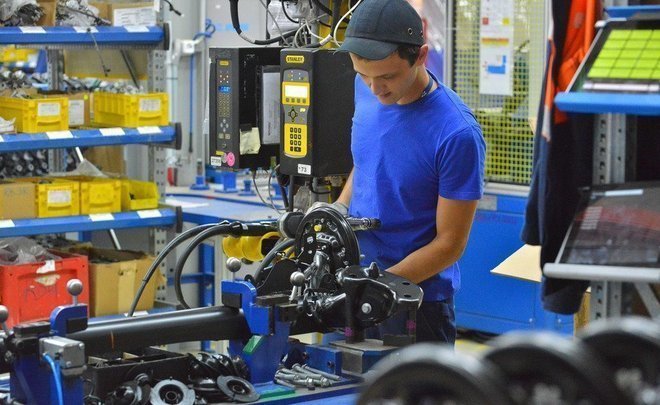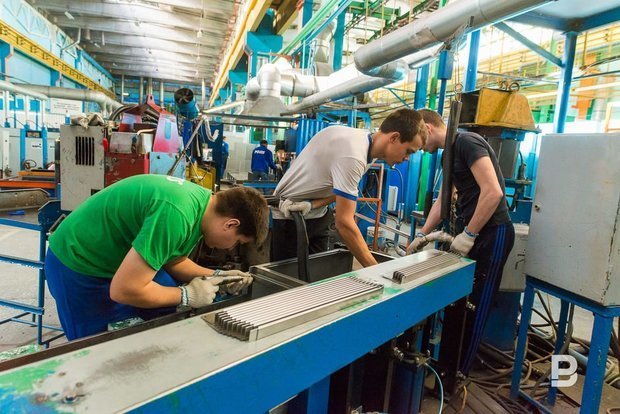Olga Belenkaya: ‘The shock to the economy turned out to be much softer and more stretched’
Finam FG analyst — about the delayed effect of sanctions and negative GDP growth rates for the second year in a row

Despite the turmoil of the previous year, Russia managed to adapt to the new conditions, maintain the main volumes of oil exports, and stabilise the situation in the financial sector. According to experts, the economic downturn will be less than 3%, inflation at the end of the year — about 12%. More detail about how the Russian economy overcame negative factors and what new risks should be prepared for — Olga Belenkaya, an analyst at Finam Financial Group, tells in the author's column for Realnoe Vremya.
Economic decline less than 3%
The shock to the economy from the events of 2022 turned out to be much milder and more stretched than expected in early spring.

However, problems in the economy and the effect of sanctions are gradually accumulating. Budget revenues are declining, including oil and gas, expenses are growing, the budget in 2023 will be compared with the planned deficit, and the deficit forecast for 2022 was raised by the Ministry of Finance in December. Consumer activity remains low, which is facilitated by a decrease in real disposable incomes, the migration outflow of part of the middle class and the savings behaviour of households associated with a high level of uncertainty. Production is experiencing problems both from export and logistics constraints (metallurgy, fertilisers, wood, coal) and from imports, where, despite the recovery, production imports are more difficult to recover than consumer imports. In a number of industries (construction, transport and logistics, manufacturing), the shortage of labour has increased due to mobilisation and migration outflow.

Economy may begin to recover by the end of the year
Even official forecasts suggest that in 2023 the GDP growth rate will be negative for the second year in a row. The Ministry of Economic Development predicts a reduction in GDP by 0,8% in 2023 after (-)2,9% in 2022, however, due to the effect of the high base of the first quarter of 2022. The forecast of the Central Bank (October) is more conservative — a reduction of 1-4%. We expect GDP to shrink by 2,5-3,5% in 2023, and the economy may begin to recover towards the end of the year. From the point of view of external demand, the situation is worsened by weak demand or recession in the global economy, the entry into force of the European embargo on oil and petroleum products, combined with the “price ceiling”, are already affecting the decline in prices for Russian oil and some weakening of the ruble. With regard to consumer demand, it is possible that the “bottom” of the recession has already been passed, but the recovery may be slow, and the risks of further decline are associated with the scenario of a possible escalation of the military conflict.
Businesses are gradually adapting to the sanctions by reconfiguring production, technological, foreign trade and logistics chains. Fiscal policy will remain soft, which will support domestic demand, although an increase in the share of defense and law enforcement spending may offset this effect for the economy to a certain extent. A negative contribution to GDP next year (as opposed to 2022) is expected to be made by net exports (physical volumes of imports are recovering, exports are likely to decrease) and, probably, investments in fixed assets (investment growth in 2022 against the background of the economic downturn was largely inertial, expected the decline may be realised later).

We will pass the lowest point of decline in the middle of the year
The main uncertainty factors for the next year are related to the situation in the global economy, where the risks of recession are growing against the background of the energy crisis, record inflation in developed countries for decades and the rapid tightening of the PREP of the largest central banks, with geopolitical factors (USA — China, the duration of the ongoing military conflict in Ukraine, the risks of its expansion and escalation).
In the first half of 2023, we expect a possible new round of recession in the economy associated with a reduction in exports and investments in fixed assets (in annual terms, the negative result will be intensified due to the effect of the high base of the first quarter of 2022). In the absence of new waves of mobilisation, consumer activity may begin to gradually recover — mainly due to the expenditure of accumulated savings. According to the forecast of the Bank of Russia, the lowest point of the recession will be passed in the middle of the year. According to our preliminary estimates, the decline in 2023 may be 2,5-3,5%, but the uncertainty is very high.
Reference
The author's opinion may not coincide with the position of the editorial board of Realnoe Vremya.